Home > Jazz / Blues
05/31/2016
The Whole Blues Truth and Nothing but the Blues Truth: An exclusive interview with Tony "TC" Coleman Part I
By CHRISTA MORLETTI MCINTYRE // Part I of a candid, frank, open, in-depth interview with Blues legend, drummer Tony Coleman, who was known as the spine of BB King's band for 29 years and has played with the best.
Tony “TC” Coleman has been playing drums his whole life. He's been a professional drummer since the 1970's, playing gigs around the world in 98 countries, backing Blues and Soul legends. He's played with Otis Clay, Bobby “Blue” Bland, Albert King, Tyrone Davis, Irma Thomas, Etta James and Ike Turner. Tony Coleman was Blues guitarist BB King's main beats man for 29 years.
Tony Coleman's style is well rounded, charged and precise. He was born in the deep South, Kissimee, Florida, which today is still a small town. After serving in the military, he moved to Chicago and through the Windy City's deep culture of Blues music, entered into and became one of the world's great roots Blues drummers. He's always on the go: touring with his band, recording in Nashville, partner in a Portland based production studio called 12 Media Music and being the music director of BB King's Blues Clubs and Cruises. Tony Coleman will play Portland next at the Safeway Waterfront Blues Fest this July 1st backing Christone "Kingfish" Ingram.
Tony Coleman spent 5 hours talking to me about his life, music and how he became the best roots Blues drummer today. Over his decades long career he's granted many interviews and most begin about how Tony Coleman has a lot to say, a story and history about the Blues to share full of his own perceptions and opinions about the times and music. While, interviewers acknowledged Tony Coleman's place in Blues history and willingness to speak, they never gave him the room to speak freely, to be himself. In a 2 part exclusive interview, Tony shared his life as and with the Blues, uncensored and direct. His voice is deep and on point, but he breaks out into a sunny laughter often. He loves to sing and some of the time, he illustrates his feelings with a song: one he just wrote on the spot or a classic we dig when it comes on the radio.
Tony Coleman's opinions about the Blues are rooted deep not just in Black culture, but a universal truth in art making: You cannot break the rules, until you have mastered them. Sit down, take some time and here's more than an interview, but an honest reflection on American culture.
P.S.- Tony wanted to let you know: “I personally want people to understand I'm cursing and carrying on, because I feel strongly about these things. I'm just expressing my passion. I know exactly how some people may take it, but too bad.”
I read that in the 4th grade a neighbor gave you your first kit from his garage. How did you get the kit home?
He brought it home to my house.
How did you practice with that kit? Did you listen to records or just groove on your own beats?
I listened to everything. Any kind of music I heard. My first gig was with a disk jockey who would give what they called record hops where he would play records for kids at night on the weekends at different clubs. He also had a drummer to play with the records. The drummer he got kind of big ego, he was drinking and not playing very well. The Disk Jockey heard me practicing in my backyard. The disk jockey's name was Rudy A-Go-Go and my friends would say to him: “Hey, would you let our friend play drums, he's really good.” And he'd say: “No, I have a drummer, that's okay.” Then one day I was practicing in my backyard and he drove by and heard me and came in the backyard and said: “You really can play!” So he talked to my grandmother who raised me and said “I'd like to have him go around and play the drums with me at the dances.” I would play with the records and then he would get on the mic say: “Let's give the drummer some!” Like James Brown used to say on the record “Cold Sweat.” Then he'd stop and I'd play the dance beat on the drums and get the people on the dance floor dancing to my beat.
What were some of your favorite singles that you played along with?
Oh, any. It didn't matter. I never had no favorite anything. I like all music. I like to drum period. I never had a favorite. I like all music, period.
You said your grandma played a radio in your crib when you were a baby to help calm you down.
She'd stick the transistor radio in there and whatever was on it, I'd listen to it and be happy to hear the music. I remember my mind thinking: “There's some little people in that little box, in that little bitty thing.” I used to try to pick it up and say something like “Hey!!!.”
How adorable. You were really that tiny and thought there were little people in there?
I can remember that. I pretty much have a photographic memory. I can remember things in my whole life. I can remember just about everything.
Me, too. I have memories from before I was one year old.
Right. It's amazing. There's only a few people like us who can do that.
I remember times when people were a little frustrated with me because I could remember everything that happened and they would be like “what?!”
Yep, that's the way I am. That's why I need to write a book. I've been talking about it for years. I'm getting close, though, to making it happen.
Would it be a memoir, fiction, where would you go with your book?
It would be a memoir about my life, because I have a very interesting life. My life is interesting to me because when I think of where I came from and everything I have experienced in my lifetime based upon my dreams and all my dreams have basically come true. I've lived an extraordinary life with some extraordinary people. I've been very fortunate
I can see that. You've rubbed elbows with some of the greats and you've learned so much from them.
Everyday. And even from the not-so-greats I learn stuff. Even if it's something not to do.
You gotta grow 'til you go.
That's right.
Your grandma didn't play any kind of music that you grew up with?
My grandmother played Country Music, Gospel Music, Blues, all kinds of music on the radio.
She was a big influence, she was all over the place like you?
I love all kinds of music and when I hear it, it made me happy. I wanted to play drums. I like to play to the rhythm.
I read that Ringo Starr is one of your long time heroes.
He was, but anybody that plays drums, not only Ringo, but any drummer, it could be the drummer down the street. When I was in the first grade I heard the marching band drummers and anybody that had a drum, I loved it. If you play drums, you're my friend. If you played drums, you were somebody I wanted to know.
It's interesting to me, because music fans they say: “Well, Ringo wasn't that good. He was steady.” Paul took over at the end and he was playing the drums on all the tracks, like the Abbey Road sessions. Why do you think Ringo is a good drummer?
Because he's rich. (Laughs) To be serious about that question you're asking: “Why do I think Ringo is a good drummer?” I think because Ringo was in a great band, that had great songs. If anybody played drums with the Beatles, they'd be great.
It's the whole orchestra, the whole band, not just one person?
Yes. Everybody picked as an influence Ringo because he was in a very popular band that had some great tunes. He was a very popular individual at that time. I think there were other bands that came out, but you don't remember them, but you remember Ringo because he was with the Beatles.
I liked how in a lot of their work, they highlighted him, they put him on a little tier above the rest of the band and they would focus on him.
I think he matched the Beatles, more so than Pete Best, the other drummer they had. The way his face looked. No other drummers' faces matched the Beatles, the way his did. When you look at Ringo Starr, he actually looks like a Beatle. I couldn't imagine him in any other band other than the Beatles. He wouldn't have fit Led Zeppelin, The Who or Cream. The way he played matched the Beatles' music.
He was. He was super funny, he really did have a great presence.
Who he was, whether he played drums good or not, didn't matter. When you saw his face, his smile and the way he was moving that head back and forth, he was the perfect choice for the Beatles. Everybody had a personality, Paul was the cute one, the girls liked. Then you had George who was the quiet one. Then you had John Lennon who was the outspoken one. Then you had Ringo who appeared to be the life of the party.
What was the first kit you had that you fell in love with?
It was a Ludwig kit.
When did you get it?
It would've been 1970.
You tried out as a student of graphic design, before you entered the military.
I went to school for graphic design after I came out of the military. I like art work, I'm an artist. I like to paint and draw. I like water colors and oil painting. I like art, design, letters. I like anything to do with art.
Has it influenced you as a musician, some of your choices, on stage, your persona?
I think when I hear music, I know how I want to color it with my drumming. Everybody has their own ideas, but I'm very fortunate to have the ability to make the drums sing a little more than than most drummers do. I have a presence when I play, it speaks to the music when I play it. It's sort of like having a dimmer switch on low and when I play you can turn it all the way up. My playing always lights up the music. It has a presence, a very powerful presence.
When you went into the military, did you go to Vietnam?
No, I joined the military right at the end of Vietnam. When I was in the military, people were just coming out of Vietnam.
Where were you stationed?
I did my basic training at Fort Knox, Kentucky. I had never been out of the state of Florida. When I joined the military, I'd never seen snow or anything like that. In December in Florida, I'd be wearing short pants. I got sent to Fort Knox, Kentucky and that was the first time I ever saw snow. The first time I saw snow falling down, me and my Southern friends were playing in it like kids. Doing those snow angels and all that. All the people from up North would look at these Southern guys and think: “Those guys are idiots how they're acting about snow.” Then I went and did my advanced training at Fort Ord, California. I used to dream that I wanted to go to California, because I used to watch The Wonderful World of Disney. And when I went out to California, I thought: “Wow, the ocean is different than in Florida.” The ocean seemed more enchanting.
Did you love it?
I used hope I could stay out there. I did the rest of my military career was at Fort Riley, Kansas, in the middle of no where. Then I went to do special training in Germany. I had never been out of the country before, so that was my first trip out of the country. Going from Fort Knox to Fort Ord was the first time I flew on an airplane.
Oh wow, what did you think of being in the airplane?
I thought it was really cool. I loved it. When I was in Germany in '74, Ike and Tina Turner were doing a sound check at a club. I was contemplating going AWOL, just to go watch their show. But my friends said: “Man, you can't do that. You're going to get in trouble if you don't get on this bus back to the base.” This was in Munich, Germany and where we were training was called the Black Forest. It was near Graf, which is like 2 hours away. I remember thinking: “Man, I want to go see Ike and Tina Turner.” They were big and I grew up listening to that music, so it was hard to leave.
That would've been one of their golden periods, too.
Then, when I was in Fort Ord, California in Monterey, my friend lived in Los Angeles and he lived in a community called Baldwin Hills. It was where Ike and Tina Turner lived and I saw their house. Right around the corner was Ray Charles' house. I remember I wanted to go knock on their doors and he said: “Man, you can't do that.” So later on down the road, I ended up playing with Ike Turner and I ended up opening up some shows for Ray Charles with my band, the Tony Coleman Band. And of course I had my career with BB King and many of the great Blues and Soul artists. So you see how things happen? Dreams can come true.
What was it like playing for Ike? That must've been super high energy. Was Tina with him at the time?
No, this was after Ike and Tina had been long broken up. I played on a record that he recorded when he got out of prison called “Here and Now.” I play a few songs on that record.
I grew up with these Cajun kids and they were really wild. Their parents threw parties every summer for the neighborhood, they were friends of my parents. The mother taught me this dance, the first dance I ever learned. It was called “The Mashed Potato.”
My dad started, created that dance.
Exactly! When I was a teenager, I went out to sock hops in the '90's and I was trying to learn as many dances, as I could. It's kind of funny I learned “The Mashed Potato” first. Did your dad have any influences on your musical tastes?
No, because I didn't really have a relationship with my dad, until I got out of the military and joined Bobby “Blue” Bland's band.
Your dad and Bobby “Blue” Bland and BB King were friends, right?
Yep. King Coleman, the Mashed Potatoes man. He was also an MC at the Apollo Theater.
He was at the Apollo Theater? I didn't know that.
He introduced all the bands to the people.
I read he was a DJ down in Florida, but I didn't know he went up to New York. In my research I watched Tavis Smiley's interviews with BB before he died and those were really interesting. I love how Tavis relates to people and it seemed like they were really good friends. What struck me about the interview, was that BB was devoted and involved with the Civil Rights Movement and a close friend to the Medgar Ever's family. I know that BB was also a father figure to you, how did he mentor you as a musician or was it that he also mentored you in your personal life?
Yes, personal life and music life. He wanted me to be more like him, instead of being more like myself. He wanted me to do things, the way he did things. He wanted me to think about life, the way he thought about life. I rejected everything he was trying to teach me. I was one of the youngest members of the band. When I joined him, when he hired me, I didn't like Blues. I thought Blues music sucked. I hated it. I didn't like listening to it. I heard it all my life and didn't like it, because it represented to me scared Black people. Black people who were afraid of White people. It represented to me people who were treated like dogs back in America when I was growing up. I refused to participate in that attitude. Blues people always came off to me as something I was ashamed of, because what Black people had to go through, especially old Black people. People like BB King and my grandparents' generation saw Black people being hung, shot, drugged down the street, can't eat in the restaurants with the White people. That's what the Blues came from, Black people's misery. The Blues was not just about the music to me, it was a culture of being treated like a dog. Even as a young person, I knew that wasn't right.
Did you experience anything like that? I remember reading BB witnessed a man being lynched.
Yeah, of course. I'm a child born in the '50's. I used to have colored crayons, I used to draw and paint. I remember being a kid, about 5 years old and I had those boxes of crayons with all the colors in them, the first time I saw a water faucet and it said Colored Water. I ran to the faucet and wanted to see the colored water come out of it. I thought to myself rainbow colors were going to come out of it, this faucet. And it wasn't, it was just ordinary water. I was getting kind of pissed off, kind of mad about it. My grandmother said: “Boy, what are you doing?” I said: “Where's the colored water?” She said: “That ain't what that is, get away from that water faucet, boy.” I had to ride at the back of the bus with all the Black people. Half of the bus at the front was empty, but you couldn't sit down. We had to go to segregated schools, people calling you Nigger. It wasn't Nigga like rappers. I didn't like that and everything about the Blues, a bunch of old Black people picking cotton and shit like that. I didn't think nothing about it was cute.
Like BB picked cotton?
I heard BB talk about those days and he was scared all the time, afraid for his life. “Yes sir, boss.” You know if a Black man looked at a white woman or a black kid did, you'd get hung, set on fire, all of that shit.
I was surprised to learn in the Tavis Smiley interview, BB had gone through a car crash and had glass in his arm that the doctors had to take it out. There was a scare BB wouldn't be able to use his arm. Tavis asked if BB couldn't play guitar, what would he do? BB said he'd go back to picking cotton, because he was good at it. That was shocking to me, a national treasure would go back to picking cotton.
When I grew up in America, I grew up as a Nigger, then from Nigger I became Colored, from Colored I became a Negro and from a Negro I became Black and from Black I became African American. I don't know about Africa. I was born in Kissimmee, Florida in the United States of America where I learned to say the Pledge of Allegiance to the Flag and one nation under God and stuff like that. I believe in that. So why should allow people treat me different because I'm Black?
My attitude has always been like an activist. I ain't putting up with that shit. You call me a Nigger and slap me upside the head, I'm gonna get a brick and try to knock your head off. That's my spirit, my soul.
There you go, stop singing and start swinging.
Yeah, I wasn't Gandhi, I wasn't Martin Luther King. I was more like, if you're going to fuck with me, because I'm Black, I'm going to fuck with you back. That's where me and BB came up in different eras. Old Black people to me, who like Blues music, represented something to be ashamed of. It meant you didn't care if a White man kicked you in your ass. You would just smile and say “Thank you.” That's what the Blues represented to my soul.
How did you get to that point, how did you make the transformation?
Well listen, I'm going to tell you. But, do you understand what I'm saying?
Yes. Unbelievably and it may seem odd, but Malcolm X had a huge presence in my development.
Yes, I was more early Malcolm like than Martin Luther King or Gandhi. My whole thing was how can the person treating you with so much hate, can hate you because you don't like it? That didn't make sense to me. You hate me and you treat me like shit and I'm supposed to say it's alright? I couldn't buy into that. That's what Blues people did, because they were afraid they were going to get hung. Now as a music person I don't want to hear that old in the backwoods, fat man with his teeth all falling out, he can't read or write, because he's been treated by White people so bad. For some White people to hear the slide guitar in Acoustic Blues, that is something they think is cool. But, for the Black people in my generation all that represented was a Nigger getting his ass beat to death.
One of the most confusing stories I've ever heard of is about when Leadbelly got out of prison and was playing for the superintendent and I thought “How can you love this man's craft, love this man's music and you hate him?” It's unbelievable and I never understood that hypocrisy.
So for me and I'm putting emphasis on the way I felt, that's what I heard when I heard the Blues and I didn't want nothing to do with it. I didn't like it. I wanted to be treated equal just like the Pledge of Allegiance say I am American. I don't know nothing about being from Africa. I ain't from fucking Africa, I'm from Kissimmee, Florida, the United States of America. I wasn't running from tigers and shit. I wasn't picking cotton either. My ancestors had to do all that and I felt bad for them. But me as a young man, I wasn't going to put up with that shit. You had to kill me. So I like James Brown said “ Say it Loud, I'm Black and I'm Proud.” That's what I like. I like Sam and Dave, “I'm a Soul Man.” I like Curtis Mayfield.
I was listening to “Superfly” the other day.
Yeah, “Superfly” and Marvin Gaye, I like Black people who are sharp and cool and intelligent. I don't want to be part of the Black people who represent ignorance and are scared of White people. Some people say there's no such thing as color in music, but I say it is. It is color, music is color. There is White music and Black music. Black people should be able to say: “I'm Black and I'm Proud” and White people should be able to say: “ I'm White and I'm Proud” and ain't nothing wrong with that. The Beatles sang “Help, I need somebody,” well that's White music. The Monkees, “Hey, hey we're the Monkees.” The Beach Boys, the Mamas and the Papas, that's White culture, White music, ain't nothing wrong with that. It exists. It's real.
Oh no, we're not going to get into the Monkees.
I like the Monkees. I like a lot of White music. There's nothing wrong with it. Because it's White culture, it's not Black music. White people had a different way of doing things. The point I'm making is that's White music. There's nothing wrong with it, I love White music, because that's White culture. That's not Black culture. White people in America had a different way of doing stuff. Black people did it their way and that's Black music. Nowadays, everybody wants to be politically correct: “There's no such thing as White music or Black music.” Now that's total bullshit, because we have Chinese music, Japanese music, Latino music, Russian music, etc. based upon the different cultures of the world.
That's important. We do have to raise these issues up and just be honest.
With all the different music from around the world, it represents the culture of who you are, how you were raised and what you were taught about your roots. I wouldn’t want to live in a world that's politically correct where everything is the same for everybody with culture and music. Respecting one another is more important than liking one another. Because if you don't respect me, you're going to have a problem with me. If you don't like me, I don't care. You don't have to agree with me, just treat me with respect, that's all I ask. But, it's what you put behind the music that makes it good or bad. If you represent evil, then it's bad. If you represent good, it's good.
That's where we have to make a point. Blues isn't music necessarily, they've tried to hammer it down, they say “well, it's between this note and this note,” but it's not really. It's life. How did you transition from hating Blues and getting to a point of yes?
I'm known as one of the greatest Blues drummers in the world. How did that happen?
Well, when I was in the military, I put a band together and we would play Funk music. We played Soul, Funk, Black music. (Smiles).
This was when you were into the EWF (Earth, Wind and Fire)?
I like Led Zeppelin, Black Sabbath, I like all kinds of music, I like different types of shit. We wanted to be the next Earth, Wind and Fire. Maurice White's Earth Wind and Fire was what Black musicians wanted to be like, because he mixed Funk up with Jazz with Soul, with Rock and Africana music and it became Earth, Wind and Fire.
Yeah, you know what we call it? Baby makin' music.
Earth, Wind and Fire had the subtle sultry stuff, but I'm talking rhythmically it was just dynamic. It wasn't boring music. It was great. After we got out of the military, all of the musicians decided we should move to Chicago because the sax player, Fred Brooks was from there. We thought we would become the next Earth, Wind and Fire. But, when I got to Chicago, there wasn't that many gigs and I got an opportunity to play on a Blues gig. But, I didn't know how to play the Blues the right way and remember I didn't like it. I played it kind of Funky. Those old Blues cats were from Mississippi and they said: “Man, you got to play these drums the right way. That ain't the way you should play them drums. You need to play it different. You're just playing a backbeat. The backbeat ain't the right stuff.”
Are you talking about Otis Clay and Bobby “Blue” Bland?
No, that was before Otis Clay, who was a Soul singer. But when I got with Otis Clay, he wasn't working all the time, but he recommended me to other musicians, so I could get the work. I had to play with these old Blues cats and I had to learn how to play these shuffles the right way. I notice today, people don't do it the right way. They leave out the ingredients, the main ingredients of doing a Blues shuffle, a Black man's Blues shuffle. Everybody else play it half-ass. I play it the way I was taught from the people who invented it: my people. So, I was with Otis Clay on a major Blues tour with BB King, Bobby “Blue” Bland, Albert King, Little Milton, Betty Wright, OV Wright. On that tour I backed up OV Wright and Otis Clay. OV used Otis Clay's band. The tour ended in Chicago. The promoter had a club in Chicago called The High Chaparral, also known as The Burning Spear. We went down to the Southside of Chicago to the club to play an after party and all the musicians from the tour were there. The promoter asked the house band to play one more set. They didn't want to do it, unless they got paid. So I said to the bandleader, “Hey man, we'll do it.” The bandleader said to me: “You know Tony, you guys are always doing shit for free, that's ridiculous, you can use our equipment if you want to.” Me and the bass player, Russell Jackson and Leonard Gill (Otis Clay's rhythm section), we did the jam session. BB came on stage and he had a new record out. Otis told us: “Hey, play BB's new song.” Because we could play it better than his band could play it, BB turned around and was smilin' and throwing thumbs up: “Yeah that's cool! That's great!” After the jam session we were on the side of the stage and BB's bandleader Cato Walker walked up to us in front of all the other musicians and said: “I want to see you, you and you. How would y'all like to work with BB King?” Everybody looked at us like “Fuck, really?! Damn!” But, see if they would've done the jam session, maybe they would've got the gig. Once I was with BB, I still had that feeling of “I don't really want to play in a Blues band.” I was touring with BB King, making money. I thought I should be playing “ahhhhh Freak out, le Freak ce chic.” I wanted to play with anything that was funky and young and hip. I didn't want to be playing with no fucking shuffle. I wanted to play Funk. I wanted to play exciting music. I would've wanted to play in Led Zeppelin. Anything, but some fucking Blues. But then and this where the transition for me learning the Blues came about: When we started to play Blues festivals, instead of playing to Black people in their clubs, the Chitlin Circuit as it's called, we started playing to more Whites who are liking the Blues. More so than Black. Black people started feeling: “Man ain't nobody want to hear that old timey Black music.We don't want to hear that shit.” You could hear it down South and all the hip people don't want to listen to no damn Blues. So now we're playing to a multitude of Whites at Blues festivals and I noticed the White musicians are trying to play the Blues, but they're not playing it the right way. They're playing it with more Rock. I'm playing with the originators, the roots, I'm part of the roots. I started thinking: “Hey, this is my culture, my music. I need to do it and kick-ass and take pride in it, because this is my culture. This is something I should be proud of, when these people get old and die, I got to be one of the people to say you all aren't playing this music with the right ingredients.”
You gotta carry the torch.
I gotta carry the torch, whether I want to or not. I'm not playing with Earth, Wind and Fire. I'm not playing with James Brown. I'm playing with BB King, Bobby “Blue” Bland, Albert King, etc.. I'm playing with Blues people. If I'm going to do that, I'm going to be the baddest Blues cat around, is what I thought to myself.
So you're attitude changed? When did you fall in love with the Blues?
I started falling in love with it and taking it more serious, when I was playing with BB King in Mississippi for free for the poor people who couldn't afford to see him. You call them Juke Joints. They were old and they were raggedy buildings. People couldn't afford to go see BB, so BB played for free. BB played free for the people. We showed up at this old raggedy building in the middle of nowhere and its got grass growing up on the stage. It looks like its going to fall in. Its got cobwebs in the corners with old dead spiders. We had to dress on the bus, there wasn't a hotel. I came out to get dressed and I was making fun of the club. I was laughing about how raggedy it looked and how it might fall in. BB heard me and he said Tony Cole-Man. He called me Cole-Man, like it's 2 names. He said: “Have a seat, son. Let me ask you a question Cole-Man. I heard you laughing and talking and joking and teasing about this place. How raggedy it is. We play Carnegie Hall, around the world and we give people good shows. I don't care where you are, son, these people deserve the same thing. Don't you think they deserve the same thing? When you make fun of these places and these people, you're making fun of me, son. This is where I came from and it hurts me to hear you do that. I don't think its right and if you don't want to play, let me know. I'll find somebody to play. Everybody deserves to be treated with respect, son. You wouldn't like it if people made fun of you, because you didn't have something, would you? Well, I just thought I'd share that with you.” I said: “I'm sorry. I apologize. I didn't mean to do that.” That was him teaching me.
Stayed tuned, The Whole Blues Truth and Nothing but the Blues Truth: An Exclusive Interview with Tony "TC" Coleman, the second part will be published on Friday, June 3.



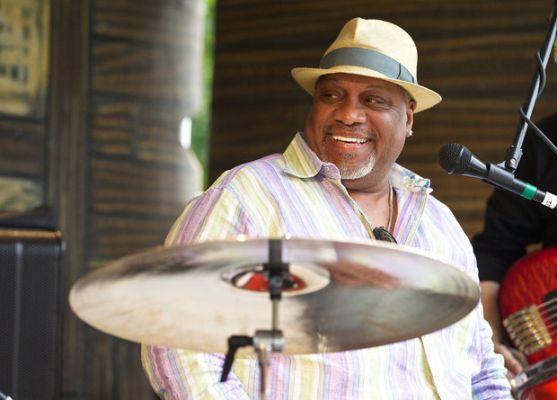
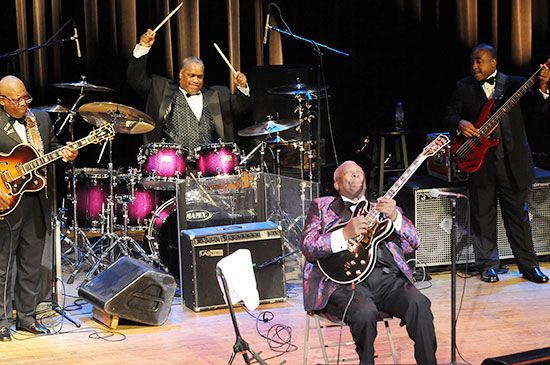
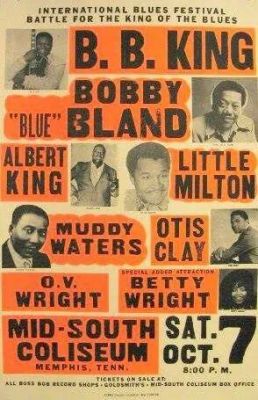
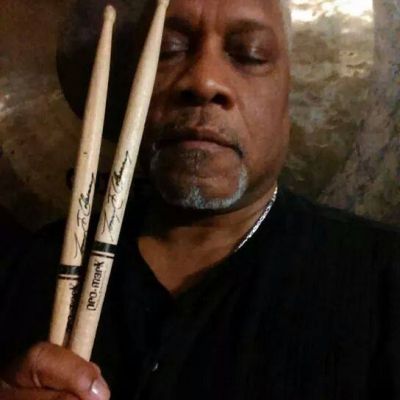
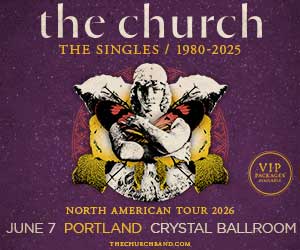
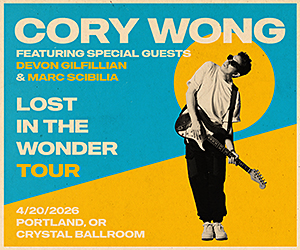



Aaron Chapman
This a great interview what is striking is how everything he says parallels how my feelings were than , although I never played til later on in life my Dad loved , lived and made sure my brother and I listened to the Blues in Chicago ( Maxwell St. or Jew Town ) . We had neighborhood bands and every summer all our friends wanted to sound like EWF ! The mental scars remain for some but pride should always be remembered in the history people and traditions that were passed on ! Thanks Tony you're the " Man "